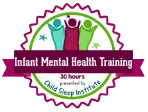We talk a lot about your child’s sleep habits and strategies to encourage sweet sleep. But what about you? Sleep is important for everyone, no matter their age. When you get enough rest, you feel better, think better, and even have a better shot at avoiding chronic disease down the road.
So I thought National Sleep Awareness Week (March 13-19) was the ideal time to talk about easy biohacks that can get you some much-needed rest. And with losing an hour of sleep March 13 for Daylight Savings Time, you’ll want to put these hacks into practice right away!
1. Make Naps Short and Sweet
If your little one has you up all night, a nap may hit the spot. But it’s all in the timing. A too-long nap may not refresh you, but have the opposite effect, creating sleep inertia that leaves you feeling groggy and sluggish. Your best bet is to nap for 30 minutes or less, and ideally you should nap ahead of a late night to help “bank” sleep time.
And don’t feel bad if you can’t follow the old advice to “sleep when the baby sleeps.” Our biological clocks are programmed to keep us awake during the day so it may be tough to nap. In those cases, any rest is good, even if it isn’t sleep–maybe you can finally squeeze in your shower for the day instead!
2. Create a Consistent Routine
Your body clock craves consistency, and you can provide that by setting regular sleep and wake times. This will be determined, in part, by your Chronotype–a morning lark may want to go to bed each night at 9 in order to wake up at sunrise, while a night owl may prefer later wake and sleep times. Try to set your times so you get seven to nine hours of sleep each night.
3. Go Tech Free
You probably know that the blue light from your TV, tablet, or smartphone is a sleep disruptor and you should log off electronics at least an hour before bedtime. But jumping right on your phone as soon as you wake up can introduce stress and disrupt your morning, too. Create a restful routine that eases you into your day, which can include meditation, a walk with your dog, or exercise.
4. You Are What You Eat–and Drink
A healthy Mediterranean diet can produce a good gut bacteria microbiome that promotes sleep. And to make it easier to fall asleep at night, keep caffeine limited to your morning coffee or tea, and don’t drink alcohol at least three hours before your scheduled bedtime.
5. Make Your Bedroom a Sleep Haven
You can create a peaceful environment that invites sleep with easy strategies that include:
- Setting the room temperature to 65 degrees Fahrenheit so you stay cool throughout the night.
- Investing in blackout curtains or blinds to keep out light that may disturb your sleep.
- Making sure your bed is big enough to comfortably accommodate you, and that your mattress offers you proper support so you don’t wake up with aches and pains.
Remember, if you feel your lack of sleep is out of the ordinary and may be due to a medical condition, set up an appointment with your primary care doctor.
Want to talk about your family’s sleep issues and how you all can set good, healthy sleep habits? Contact me for a 30-minute consultation.





Comments are closed.